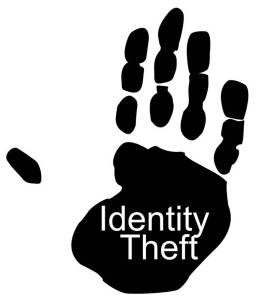Tax Season 2017 – Fighting Identity Theft
 There are two seasons that cyber criminals celebrate; Christmas and tax season. African-Americans should understand that protecting themselves during this time is especially critical A 2011 Federal Trade Commission national fraud survey revealed that African-Americans were almost twice as likely to be victims of fraud as whites. African-Americans were victimized 17.3 percent of the time compared to 9 percent for whites. For Hispanics 13.4 percent reported being fraud victims. To top off these disturbing numbers is the fact that black and minorities often don’t report fraud because of embarrasment.
There are two seasons that cyber criminals celebrate; Christmas and tax season. African-Americans should understand that protecting themselves during this time is especially critical A 2011 Federal Trade Commission national fraud survey revealed that African-Americans were almost twice as likely to be victims of fraud as whites. African-Americans were victimized 17.3 percent of the time compared to 9 percent for whites. For Hispanics 13.4 percent reported being fraud victims. To top off these disturbing numbers is the fact that black and minorities often don’t report fraud because of embarrasment.
Tax season used to be a multi-billion dollar hunting season for identity thieves. But the hunting may not be so good this year. Because of IRS work identity theft has plummeted by 46 percent. 376,000 fewer taxpayers had their identities stolen by criminals.
In the past two years the IRS, working with major tax preparers, started sharing information to improve tax payer security. Congress has also given the IRS more tools to prevent criminals from getting fraudulent tax refunds. This allowed the IRS to identify and block over 1 million phony tax refunds last year.
Federal authorities crushed a massive identity theft ring in Alabama and Georgia in 2015. Those thieves collected $10 million in fraudulent refunds. Cyber criminals are merciless. This scam even targeted veterans of the Afghanistan war being treated at Fort Benning’s hospital.
Last year another ring in the District of Columbia was taken down as they tried to steal more than $20 million in fraudulent tax refunds. The victims included people in assisted living facilities, drug addicts and prison inmates.
Technology deployed at the IRS in recent years identitfies potential fake tax returns. Now the IRS can flag dramatic differences in a taxpayer’s return from year to year for additional screening.
The earned income tax credit is a big target for identity thieves. The IRS was holding refunds until Feb. 15 for families claiming this credit. These credits provide payments to people who don’t make enough money to owe any federal income taxes. This makes them attractive to identity thieves.
Protect your personal nformation during tax season by following these steps.
- File early, even if you owe. Filing your return early prevents anyone who has stolen your information from filing a fradulent return. The IRS will only accept the first return even if the thief has your social securty number.
- Encrypt your data. Encrypted data is secure even if your laptop is stolen. There is plenty of free encryption software available. PC Magazine recently published The Best Encryption Software of 2017. And using it is not that hard. If you can create a password you can encrypt your data.
- Buy a decent shredder. Destroy any document with any personal information, especially your Social Security number. Any small bit of information helps a cyber thief and they are not above going through your trash can. These thieves have been known to drive through neighborhoods picking up trash! Any personal papers that has your bank account or investment account information should be shredded before disposal.
- Use strong passwords. Learn to construct powerful passowords that are easy to remember. And change them often.
- Keep your computer software up to date. Use a good anti-virus/anti-malware. Some cyber thieves can install spyware on an unprotected computer and steal your information.
- Be aware of phishing attacks. Phishing is when you recieve an email or call asking for information using very sneaky questions. This is a form of social engineering. Don’t respond or click on email attachments or links. Anybody calling claiming to be from your bank or the IRS should be hung up on and reported. Banks and the IRS don’t call asking for information. These callers can be insistent and even threatening. Just hang up and investigate on your on by calling the IRS or your bank. DON’T GIVE ANY INFORMATION OVER THE PHONE! And remember, if anyone calls asking for money you should be the one asking the questions.
- The IRS does not ask for money NOW! The don’t ask for money to be tranferred via a payment card. They don’t ask for credit card or debit card information. The are not coming to your house to arrest you. If someone threatens you with anything like this they are thieves. If you get a suspicious email or phone call, do not respond. Immediately call the IRS Identity Protection Specialized Unit (IPSU) at 1-800-908-4490.
- Is someone else preparing your taxes? Here what you need to be asking;
- How will my data be stored?
- Will it be encrypted?
- What computer security software is used?
- Who has access?
- Have those with access been properly screened?
- Do not transmit tax returns or sensitive personal data on public WiFi. That means Starbucks or the public library. This is prime hunting ground for cyber thieves. These hackers wait and watch wifi traffic for an unprotected computer. The can intercept and record your online activity stealing your information or even hijacking your computer.
- Check you credit report at least annually. You can get all three free credit reports from AnnualCreditReport.com. Remember this is the only credit report website authorized by the federal government.
Don’t be a victim during this tax season. Be aware!






